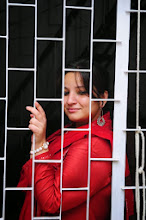
‘O’ My God!
One thing that I did unfailingly after reading Orhan Pamuk’s “The Museum of Innocence” or “Masumiyet Müzesi” was recommend it to everyone I knew, loved, hated or even ignored. Last night Penguin presented an evening with him and launched his new book “Orhan Pamuk the Naïve and the Sentimental”, and there I was delighted to discover more reasons to admire him. In fact everyone admires him… People vied to talk to him. There were all sorts of people… people who genuinely follow his literature, people who came to brush shoulders with the who’s who, people who wanted to know “what’s the fuss about Pamuk, suddenly!” People who were there by means of being well connected people who wanted to tell their neighbours, “Hey last night I was at Orhan’s book reading… and you? Ok, watched Roadies!” etc etc. It was a pleasure interacting with the wide variety.
His books are for “ideal readers” who apart from being entertained read to shape their souls and build their characters. He has been an ideal reader in his growing up years, took to books to make and shape his character and to enrich his soul. When Orhan’s dad found books migrating from his library shelf to that of his son’s he said, “Aha, the books have migrated to the higher echelons!” Guess this is the only story of migration that wasn’t met with a frown! Reading hones ones imagination, he said, “When you read, the words written bring a picture to your mind and you start imagining, you become the part of the story and tend to live that character!”
The not-so-young-Turk (age 58) of Turkish Literature talks about love and makes one look for love around him. (That’s what MOI did to me!) His hero Kemal Mustafa, in “Museum of Innocence” falls in love and fails to fall out of it… unlike a lot of us! “People fall in love and find some way or the other to come out of it, but my hero can’t find any way that makes him fall out of love with Fusun!” Through this book, set in a Muslim culture, he went into the detailing of having sex before marriage that Islam prohibits.
He doesn’t mind falling in trouble for discussing the family ties that start reeking. His book “Istanbul – The Memories of a City” is an autobiographical attempt, and he brought out the lost tradition of joint family. When we can write about the family that eats together, sleeps together, cheers together we can even enjoy the liberty to write about the family that falls apart together. Orhan doesn’t believe in wasting space by not telling what needs to be told! He said, “If there is family resentment one should be able to bring that out in the book.”
What’s inspiring is that he wrote “Istanbul” when he was on the verge of depression. In an interview he recalled: “My life, because of so many things, was in a crisis; I don’t want to go into those details: divorce, father dying, professional problems, and problems with this, problems with that, everything was bad. I thought if I were to be weak I would have a depression. But every day I would wake up and have a cold shower and sit down and remember and write, always paying attention to the beauty of the book.”
I have always read, “Patience pays” and saw it last night how magnanimously it pays!
All of his books have been translated in different, around 50, languages. How amazed I was at his faith in a non-western way of expressing- Turkish. He started with Turkish language; popular success came late, but it came with a bang. For Orhan, neglecting a non western writing is equal to, “neglecting a lot of human experience!” I would like to end with one his quotes, “What literature needs most to tell and investigate today are humanity's basic fears: the fear of being left outside, and the fear of counting for nothing, and the feelings of worthlessness that come with such fears; the collective humiliations, vulnerabilities, slights, grievances, sensitivities, and imagined insults, and the nationalist boasts and inflations that are their next of kin ... Whenever I am confronted by such sentiments, and by the irrational, overstated language in which they are usually expressed, I know they touch on a darkness inside me. We have often witnessed peoples, societies and nations outside the Western world–and I can identify with them easily–succumbing to fears that sometimes lead them to commit stupidities, all because of their fears of humiliation and their sensitivities. I also know that in the West–a world with which I can identify with the same ease–nations and peoples taking an excessive pride in their wealth, and in their having brought us the Renaissance, the Enlightenment, and Modernism, have, from time to time, succumbed to a self-satisfaction that is almost as stupid.
—Orhan Pamuk, Nobel Lecture

